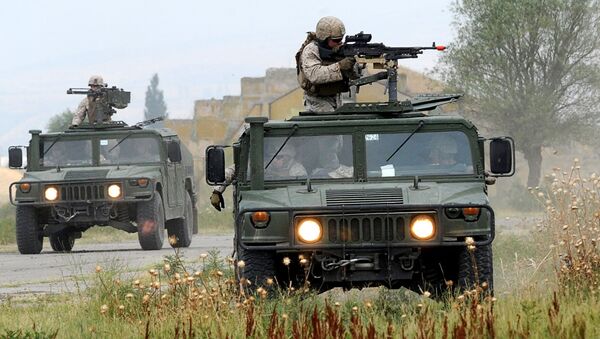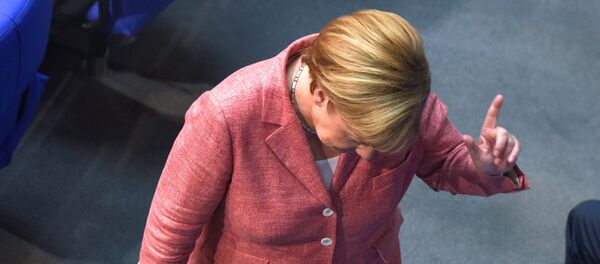Trump's presidency could drag the US' military alliances into a major crisis, Professor Benjamin Schreer of Macquarie University, Australia, argues.
In his article for The Strategist, the commentary and analysis site of the Australian Strategic Policy Institute, Professor Schreer highlighted that "US military alliances in Asia and Europe have been a cornerstone" of "the liberal international order."
"There's a good chance that many of these alliances could soon be faced with a major crisis," the Australian academic warned.
While the commonality of values cannot be overstated, Trump's views dissent with those of America's allies, he underscored, citing German Chancellor Merkel and French President Hollande's concerns.
Indeed, following Trump's victory, Angela Merkel said that she will work with the US President-elect on the basis of "shared values of democracy, freedom and respect for the law and the dignity of man, independent of origin, skin colour, religion, gender, sexual orientation or political views."
The unusual message was dubbed by The Independent a sort of "reintegrative shaming."
"Should Trump indeed pursue this option at the expense of European security concerns, other NATO allies will also look elsewhere for security," Schreer warned.
Commenting on the matter, Willy Wimmer, former Parliamentary State Secretary in the German Defense Ministry, told Sputnik Deutschland that what "we are dealing with" is "a sort of international 'collective policy' pursued by Democrats together with the 'war establishment' of Democrats and Republicans in Washington."
On the other hand, Schreer argues, Trump is likely to alienate America's longstanding allies — Japan, South Korea and Taiwan — in the Asia-Pacific region.
"Trump's transactional understanding of alliances-the 'more you pay, the more we protect you'-fails to understand that America's leadership capacity and disproportionate influence has been based on its provision of significant resources," the Australian professor noted.
In his interview with Sputnik Takeshita expressed skepticism regarding Trump's "burden sharing" rhetoric.
"If he [Trump] is asking for more it will also induce a lot of right-wing movements in Japan. They will say 'Hey, why won't we arm ourselves then, why should we listen to the United States?' Which again would not do anybody any good," the Japanese academic stressed.
"Trump's presidency could make the United States and key alliances strategically poorer," Schreer believes.
"More than anything, Trump's pro-Russia stance as well as support for xenophobic and authoritarian positions are unlikely to subside, making cohesion within NATO a very difficult undertaking… While calls for ‘greater burden sharing' have been repeated by almost every post-war US administration, in the context of Trump's ideology America's alliances could soon face a major crisis," the Australian academic concluded.







